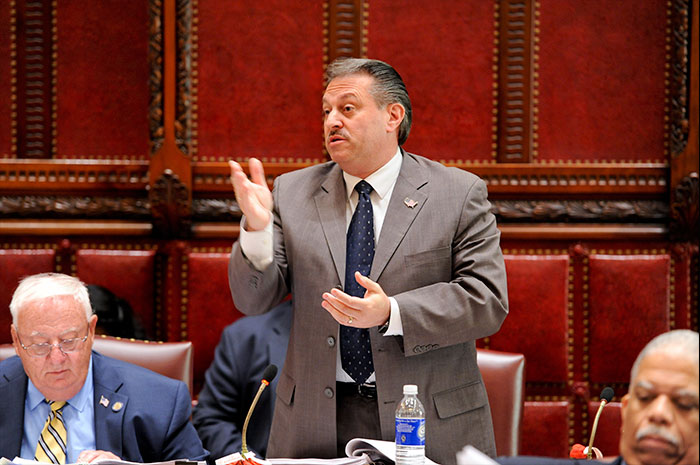Photo Courtesy of Sen. Addabbo’s Office
Addabbo initially introduced the cockloft legislation in the wake of a five-alarm blaze in Middle Village in 2013.
By Michael V. Cusenza
Legislation to provide economic incentives for the removal of hazardous cocklofts from residences was recently approved by the State Senate, according to Sen. Joe Addabbo, Jr. (D-Howard Beach), the measure’s sponsor.
“Over the years, there has been growing evidence that cocklofts lead to extremely fast moving and hard-to-control flames that put both residents and firefighters at extreme risk, and we need to address these dangers,” the senator said.
Addabbo initially introduced the legislation in the wake of a five-alarm blaze in Middle Village in 2013, which damaged seven homes, injured 11 firefighters, and may have been exacerbated by the existence of cocklofts in the structures. In March 2015, Addabbo renewed his call for action after a deliberately set four-alarm fire in Woodhaven destroyed eight homes, injured five civilians and killed two dogs. Citing evidence that the fire spread quickly to adjoining row houses through cocklofts—the space between the rafters and suspended ceiling—Addabbo urged his colleagues in the Legislature to approve a bill that was passed in the Senate in 2014 that would eliminate cocklofts in aging row houses.
“Connected row houses are no longer built with cocklofts, partly due to their ability to allow flames to move quickly from building to building,” Addabbo noted in 2015. “Now, it’s time to protect our older buildings, historic marks of our neighborhood, by closing off these structures so this does not happen again. The frequency of these kinds of fires needs to be addressed.”
Under the new legislation, residents whose homes contain cocklofts would be able to apply for a 30-percent tax credit to repair them. Refundable credits of up to $500 would aid eligible homeowners in affording the cost of making the improvements, Addabbo noted.

